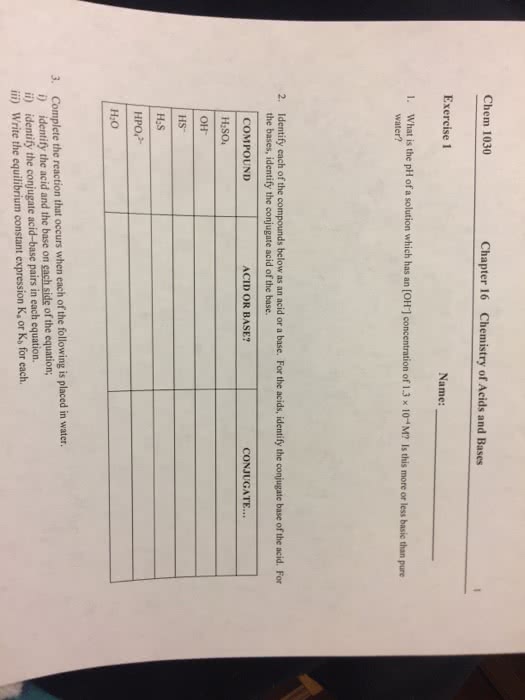CHEM 1114 Lecture Notes - Sodium Hydroxide, Acid Strength, Decimal Mark
Document Summary
Acid: any compound which produces hydrogen ions (h+) in solution. Base: any compound which produces hydroxide ions (oh-) in solution. Salt: any compound which is the neutralization of an acid and base. When a chemical donates hydrogen, it is an acid. When a chemical receives hydrogen, it is a base. H2o donates h+, so it is an acid. 2 accepts h+, so it is a base. A reaction can occur between 2 water molecules in pure water. This is called the self- ionization of water. The kw = [h3o][oh-] is the equilibrium constant for water at 25o c , kw =1. 0 x 10-14. X= [h3o] = [oh-] = 1. 0 x 10-7 m. An increase in temperature favours the products and favours the formation of ions. Water remains neutral because [h3o] = [oh-] Solutions are classified as acidic/ basic/neutral according to the relative concentrations of h3o+ Note: [h+] = [oh-] ph = -log [h+]






